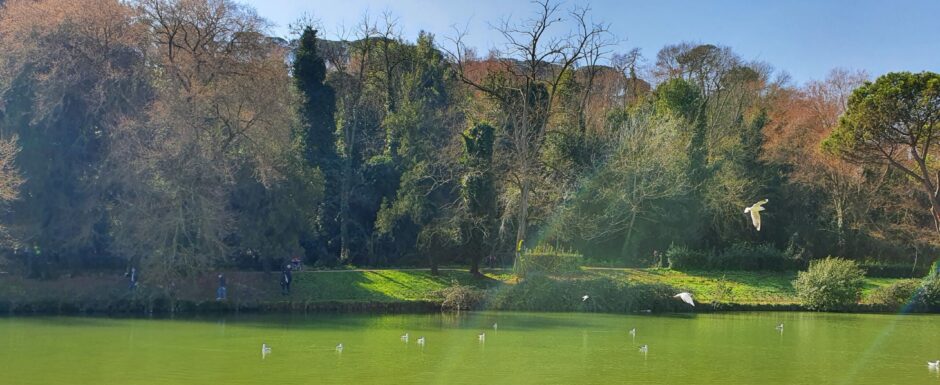Decoding the Disciplines in Belgio
Martedì 2 luglio 2019 la prof.ssa Sandra Chistolini parteciperà alla conferenza Decoding Education in Belgio, in quell’occasione presenterà i risultati ottenuti dal progetto Decoding the Disciplines in European Institutions of Higher Education: Intercultural and Interdisciplinary Approach to Teaching and Learning e sarà possibile sperimentare una sezione della metodologia. La metodologia denominata Decoding the Disciplines ha lo scopo di insegnare ad identificare i cosiddetti bottlenecks, ovvero gli ostacoli nell’apprendimento di argomenti e processi che sono specifici della disciplina, interdisciplinari, complessi ed emotivamente coinvolgenti. L’immagine del “collo di bottiglia” rende l’idea dell’arresto nel fluire della conoscenza scientifica nello studio delle discipline accademiche. La metodologia richiede un vero è proprio cambiamento circa l’attenzione da prestare all’intero processo conoscitivo per apprendere, in modo efficace, i caratteri fondanti il discorso disciplinare. La nuova forma mentis richiede l’impegno di studenti e docenti. Si può diventare veri e propri esperti orientando la propria prestazione al successo in ogni disciplina, anche di quella ritenuta più ostica. Il progetto “Decoding the Disciplines in European Institutions of Higher Education: Intercultural and Interdisciplinary Approach to Teaching and Learning” è stato sperimentato nell’Università degli Studi Roma Tre, in discipline umanistiche e scientifiche ed è stato anche applicato nel campo delle tematiche sociali della diversità, dell’inclusione e della comprensione interculturale. Educa alla “diversità intellettuale” del pensare in aula, incoraggia a trovare soluzioni varie ai problemi scientifici e a comprendere i valori delle persone senza pregiudizio, Insegna l’arte del pensiero critico, alla base di ogni democrazia europea, e promuove il dialogo interculturale a livello nazionale, regionale e locale. Costituisce una risposta importante alla trasformazione dei sistemi educativi dei Paesi membri dell’Unione europea, privilegiando mezzi integrativi (interdisciplinari), formali (delle lezioni frontali) e alternativi (basati su progetti ed esperienziali) per istruire all’alfabetizzazione digitale ed educare alla riflessione sull’uso dei media. Forma alla acquisizione di competenze professionali e interculturali. Vengono così favoriti i valori della democrazia, i diritti fondamentali, il rispetto e la cittadinanza responsabile per raggiungere quel più alto grado di inclusione sociale che rappresenta un obiettivo prioritario nelle società europee. http://www.uniroma3.it/en/articoli/pre-agenda-internazionale-la-prof-ssa-chistolini-in-belgio-12762/
Decoding Education.
http://www.decoding.education/
Conference with workshops, lectures & round table,
Musical performances. July 2 from 9 am – 17 pm
VIVES campus Torhout
Sint- Jozefstraat 1 8820 Torhout – Belgium
Free admission. Registration by sending e-mail before June 28. decodinginfodesk@gmail.com
The Decoding approach is a guide to identifying bottlenecks in teaching topics and processes that are discipline-specific, cross-disciplinary, complex, and emotionally charged. The Decoding method focuses on learning bottlenecks in academic disciplines. This involves changing the focus from learning ABOUT a subject to learning HOW to become more expert in the ways of thinking and practising, which is necessary for successful teaching and learning. This use of Decoding makes it particularly useful for developing critical and reflective thinking. The European Decoding project is also applying the method to the social issues of diversity and intercultural understanding. The Decoding model leads to “intellectual diversity” in thinking in the classroom: to finding different solutions to problems in the field of science, to seeing positions different from those of the author in literature, or, in history, to understanding the values of historical persons without judging them. In short, it teaches the art of critical thinking that is at the root of every European democracy and inter-cultural dialogue at national, regional, and local levels. The Decoding method responds to a dire need, in the EU educational system, for integrative (inter-disciplinary), formal (lecture-based), and alternative (project-based and experiential) means of education, critical thinking, media and digital literacy, as well as professional and intercultural competences. All of this fosters the values of a democracy (fundamental rights, respect, and responsible citizenship), alongside the need for a higher degree of social inclusion in European societies.
Programme of the Conference_DD-2019
I POSTER DELLA DELEGAZIONE ITALIANA
THE FIVE POSTERS OF THE ITALIAN DELEGATION
Sandra Chistolini, Poster Decoding the Disciplines Knowledge without walls
Sandra Chistolini, Poster Multiplier Event and Decoding the Disciplines Workshop
Sante Centurioni, Poster Physics. Paola Supino, Poster Maths
A. Mori, S. Petrera, F. Tiberi, Listening to overcome learning difficulties
T. Saccoccia, M. Mogioni, T. Sangregorio, Elevator foretell
Please visit: Decoding The Ivory Tower
